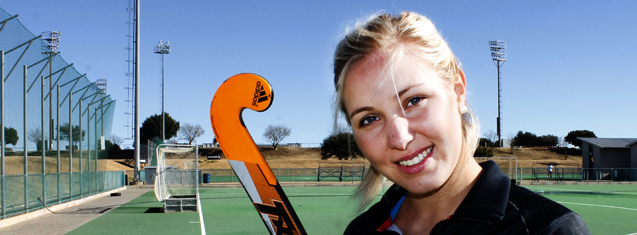
Izelle Lategan, a fourth-year BSocSci (Human Movement Sciences) student at our university, continues to fly the Kovsies’ flag high on national level.
In December 2010, Izelle made her debut for SA hockey against Argentina. Among her greatest achievements wearing our country’s colours, are:
- she scored a hat trick against India in Ireland in 2012 (SA won that game 3-2), and
- she was captain of the Junior World Cup U/21 team in Germany this year.
“Representing the country amounts to a lot of pressure. I managed to get through by working hard and putting in extra training hours in order to achieve all these,” she says. “When you have a setback, don’t step back, but rather make a comeback!”
She appreciates the support she receives from her family, friends and coach – especially when on international tours. “Even though they can’t make it to all my games, they try hard to show their support when they can,” she added.
Izelle’s focus is now on representing Kovsies at the South African Student Sports Union (SASSU) games in Pretoria from 30 June – 4 July 2014. She is currently resting from national duty, since she wants to complete her undergraduate studies this year, but aims to return next year.
Her long-term goal is to play at the 2016 Olympics in Brazil.